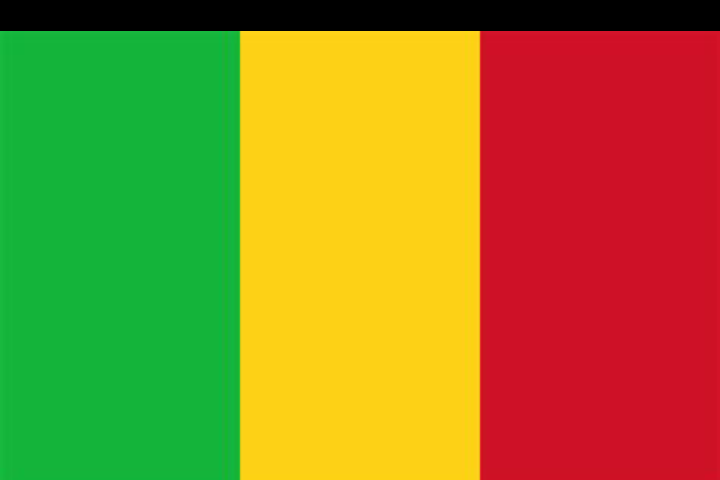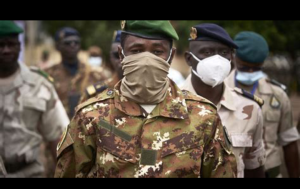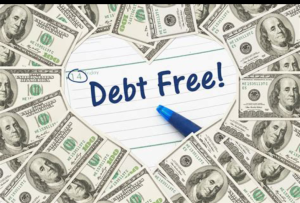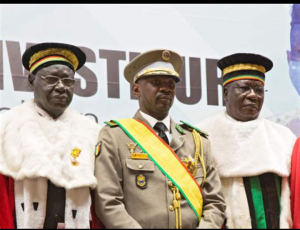In a remarkable turn of events, Mali has emerged as the first African nation to pay off its debts completely, breaking free from a cycle that has ensnared many countries on the continent for decades. This achievement is not just a financial milestone; it represents a bold declaration of independence and self-sufficiency in a region often dominated by foreign creditors and economic dependency.
Background of Mali’s Debt Crisis

For years, Mali struggled under the weight of crippling debt. Nearly half of its national budget was consumed by debt repayments, leaving critical sectors like healthcare and education severely underfunded. Hospitals lacked necessary resources, schools faced shortages, and infrastructure projects were stalled—all while the nation’s revenue was siphoned off to service foreign loans. This situation created a sense of entrapment akin to quicksand: every effort to improve conditions only seemed to deepen the crisis.
The roots of this predicament can be traced back to high debt-to-GDP ratios and unfavorable borrowing terms imposed by external creditors. For many in Mali, the burden of debt was not merely financial; it was a threat to national sovereignty. How can a country claim independence when it is beholden to foreign lenders?
Mali’s Turnaround: Colonel Asimi Goita’s Leadership

The turning point came with the rise of Colonel Asimi Goita, who took power in 2021 amidst political unrest. Unlike his predecessors, who often aligned with Western interests and global financial institutions, Goita adopted a different approach. His administration focused on austerity measures, cutting wasteful expenditures, and terminating contracts that disproportionately benefited foreign entities.
Under Goita’s leadership, Mali began to leverage its abundant natural resources—particularly gold mining—to boost national revenue. Historically, profits from these resources flowed primarily to foreign companies. However, Goita’s administration renegotiated contracts to ensure that more profits remained within Mali’s borders, significantly increasing the country’s revenue.
Mali digs into its own Gold: Investment in Agriculture

In addition to capitalizing on natural resources, the government made substantial investments in agriculture—a sector that employs a significant portion of the population. By modernizing farming techniques and providing subsidies to local farmers, Mali aimed for food self-sufficiency while also creating surplus products for export. This dual approach not only fed its citizens but also contributed to economic stability.
The culmination of these efforts led to an astonishing announcement: Mali cleared $332 million in debt. This was not merely a financial victory; it symbolized a rejection of what many perceive as financial colonialism—a statement that Mali would no longer be shackled by external forces.A
Debt-Free: A Broader Movement

Mali’s success has sparked interest across the continent. Neighboring countries like Burkina Faso and Niger have taken notice and are exploring similar paths toward economic independence. This has given rise to the Sahel Alliance—a coalition of nations determined to reclaim their sovereignty and reduce reliance on foreign powers.
The implications of Mali’s actions extend beyond its borders. They challenge the traditional narrative that African nations must remain dependent on Western aid and loans. Instead, Mali’s example suggests that self-reliance is possible through strategic resource management and prioritizing national interests over foreign influence.
Challenges Ahead

Despite this progress, challenges remain. The Sahel Alliance faces geopolitical pressures from established powers reluctant to see Africa rewrite its economic narrative. Critics argue that pivoting towards new partners like Russia and China could lead to new forms of dependency. However, proponents believe that fostering diverse partnerships can create a more balanced global economic landscape.
As Africa stands at this crossroads, Mali’s journey serves as an inspiration—a beacon for other nations seeking to break free from the chains of debt and dependency.
Conclusion
Mali’s achievement in becoming debt-free is not just an isolated incident; it is part of a larger movement towards economic self-determination across Africa. By prioritizing national interests and leveraging local resources, African nations can redefine their place in the global economy. The world watches closely as Mali leads the way toward a future where African countries negotiate as equals rather than subordinates.
As this narrative unfolds, it raises crucial questions about sovereignty, economic independence, and the potential for a new era in African development—one where nations reclaim their wealth and invest in their futures without external constraints.
What are your thoughts on this article? Air your comments below 👇🏽 and follow us for more documentaries like this.


